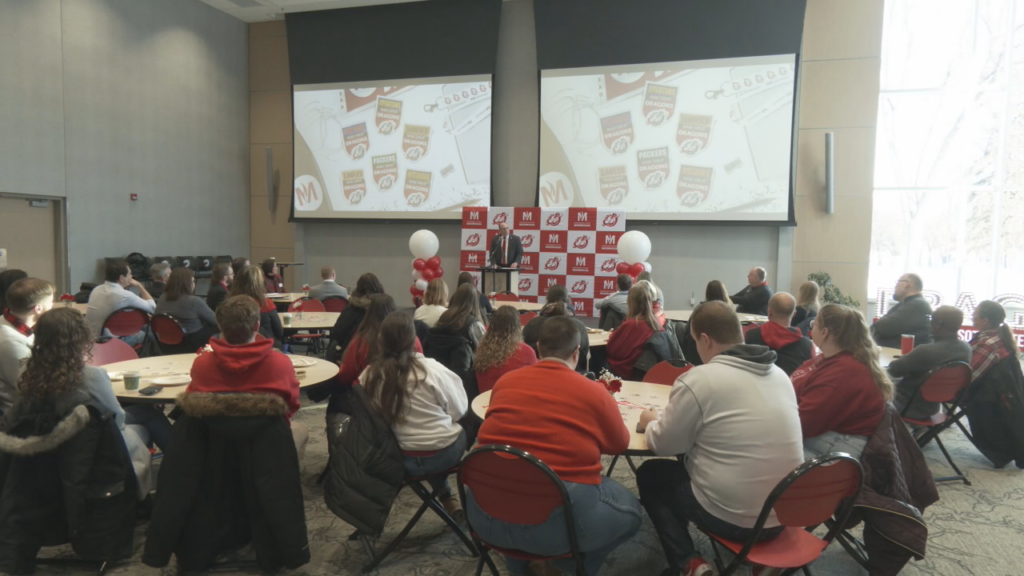Transgender Athletes In Minnesota Face Hurdle
Sorry, this video is no longer available
Some Republican Minnesota lawmakers are trying to prevent transgender students born as male from playing on female sports teams in high school.
The push comes after the state high school league voted last year to allow transgender students to play on female teams.
A bill introduced in the Minnesota legislature by some republicans would tell some transgender students what teams they can join.
It would prevent people assigned the male gender at birth from joining female sports teams.
Lawmakers cite fairness and privacy issues.
“To me it’s common sense that a physical, a biological male is going to be stronger in most cases than a biological female and it’s an issue of fairness in terms of males playing on female sports teams,” said Minnesota State Senator David Brown
MSUM freshman Vannessa Venhizen disagrees with the bill.
She recently had a conversation with some neighbors who agree with Senator Brown’s position.
“They felt that it would be an unfair advantage and I disagree,” said Venhizen.
Venhizen was assigned male at birth, but identifies as a female.
She had to take gym class in high school and it wasn’t a positive experience.
“Immensely terrifying because they acknowledged my transition but they put me in the men’s locker room anyway, but they put me into a laundry room in the locker room,” said Venhizen.
Some say officials should try and stop bullying instead of using it as an excuse.
“Well maybe that’s the problem that we need to look at then rather than letting transgender people play other sports,” said Aleda Pikkaraine of Detroit Lakes.
Officials say that having different genders change in alternate locker rooms is a big concern.
“I don’t see how you can argue that, that doesn’t lead to opportunities for bullying and intimidation,” said Senator Brown.
“Its still is important that people that identify as trans, or non–binary, gender non–conforming can join the team that best fits them,” said Venhizen.
It’s a bill that some say will help students, while others believe it is simply discriminatory.
The House and Senate bills have no Democratic supporters. Neither bill has been scheduled for a committee hearing yet.






